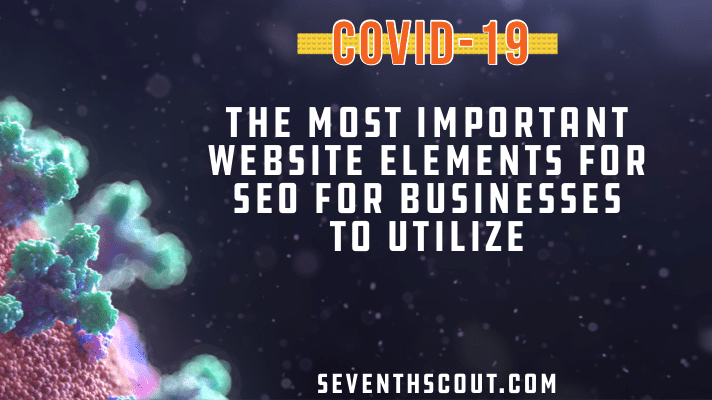SEO is one of the most effective ways to get your products and services to the audience you need, but being a web-based marketing strategy means that it can often get pretty technical. Search engine optimization isn’t just about having catchy keywords and engaging content; it’s also important to make sure you’re using the technical resources this marketing strategy offers to get your company in front of the right sets of eyeballs. Today we’re going to walk you through the nitty gritty of the tools you need to make SEO work for you at Seventh Scout.
Keywords
This is the bread and butter of any good social media strategy. You need to think of keywords that will be relevant to your desired clientele’s interests, and you need to balance their usage between repeating them often enough that a search engine will catch wind of them, but not so much or in such a way that it looks unnatural in your website copy. Thinking of secondary and tertiary keywords that are also related to your page is a great way to add variety to your copy and draw in more readers while giving it a more natural flow.
Title Tags and H1 Tags
These are two similar but distinct elements of SEO that lots of people have a tendency to confuse with one another. While both have to do with what your page is titled, each represents a different part about what a viewer sees first about your page. Let’s break it down:
- The title tag is the HTML title of your page. This is what shows up in search results, the top of your browser tab, and in shareable links on social media.
- The H1 tag determines the title of your page, on the page itself.
For example, say you’re a barber in New York. For building your website’s homepage, you might want to make your title tag something like “Get the Best Cuts in Manhattan at Big Jim’s Barber Shop.” Once your customer clicks the link, the headline on the page, i.e. the H1 tag, might read, “Welcome to Big Jim’s Barber Shop, Serving NYC for Over 25 Years.”
It’s important to make these tags similar enough to stay on-brand but different enough to not read repetitively. Title and H1 tags are an important part of drawing in customers and engaging their attention right off the bat.
Page URL
URL stands for “Universal Resource Locator.” It’s most easily recognizable as the long string of letters and numbers you see on every website right under the tab, usually ending in a .com or a .org. Depending on what server host or website builder you’re using for your site, you’ll have a good amount of flexibility concerning what your URL will actually read like, and it’ll usually be possible to fit in a few of the words from your title or H1 tag so as to keep the content consistent.
Alt Tag
An alt tag or alt description is an HTML element that one attaches to images on one’s webpage. The reason for this is so that search engines can pick up the text associated with your image and apply it to text searches, as well as being able to find the picture in question through services like Google Image Finder. Plus, alt tags are very helpful for people with visual impairments who may not be able to see the images on your page (hovering your mouse over an image will usually bring up its alt text).
Meta Description
The meta description is a quick summary of your page that will show up under its link in search results, usually between 100-200 characters. This will be your customer’s first point of contact with the page in question if they find it via search engines, so it’s important to make your meta description concise and give it a unique selling proposition. (“We ship free on orders over $50, so buy now!”)
Now that you know the bones that make the body of SEO, it’s time to set them in motion! If you want to learn even more about the tools at your disposal to make SEO work for your project or business, get in touch with the experts at Seventh Scout today and ask about our rates. We’re always open to working with new clients, and we’ve helped companies and entrepreneurs of all sizes achieve the visibility they deserve. Take your dreams to the next level and make Seventh Scout your partners today.



